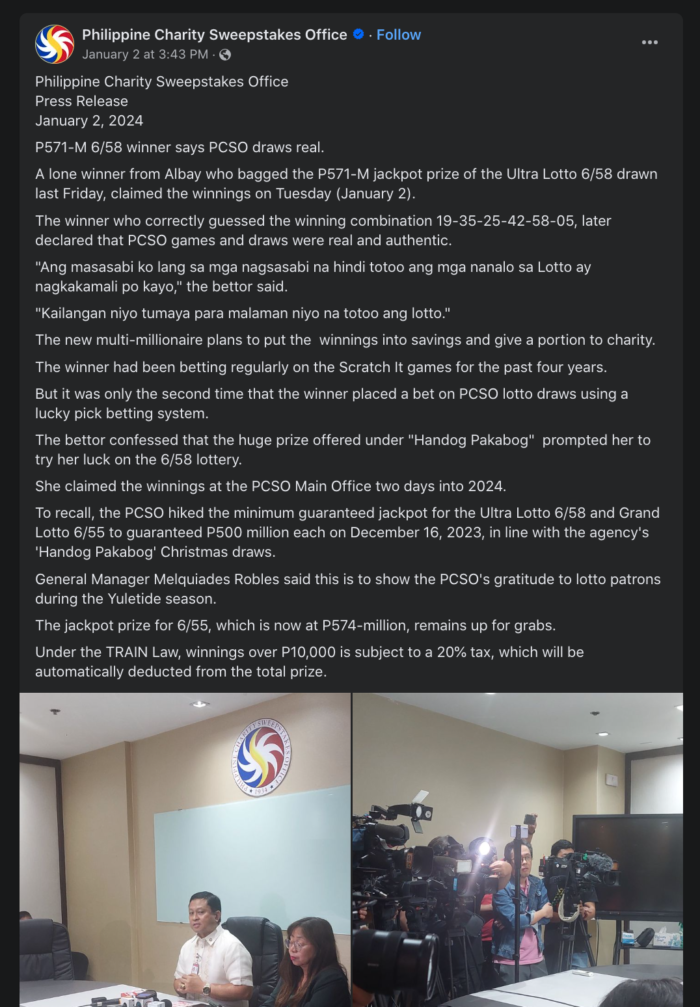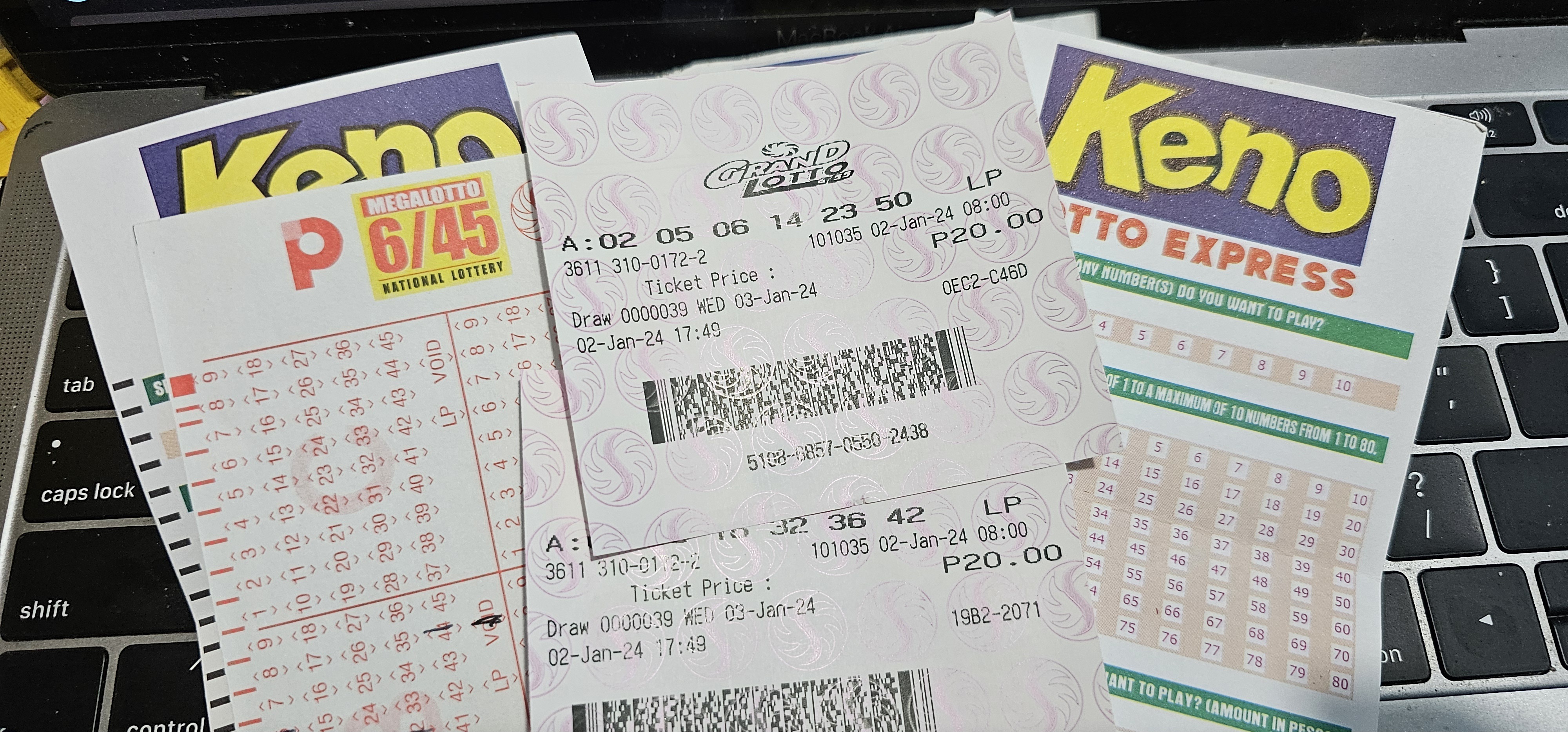Not many industries operate without needing traditional trust mechanisms. The market research company Ipsos has found that pharmaceuticals are the most trusted sector, enjoying 34 percent of the public’s confidence. It beat the technology sector by 1 percent, food and drinks by 2 percent, retail by 3, and banking by 5. Social media companies? They only enjoy 22 percent trust.
Although the pharmaceutical industry enjoys the most trust, it is still noteworthy that over 66 percent of the population doesn’t trust this industry.
If you’re wondering how much the public trusts the government, I think you won’t be surprised if I tell you it’s only tied with social media companies.
Growing Distrust
The Philippine Charity Sweepstakes Office (PCSO) as the principal government agency managing products such as sweepstakes and lottery games are not exempted from this distrust (or mistrust depending on who you talk to). If you see posts online that report on somebody winning the lottery jackpot prize, top comments are usually those that say, “Congratulations, PCSO!” an obvious dig at the sweepstakes office, insinuating that no real bettor won—that someone at the organization benefited from the jackpot prize.
When the jackpot prize winner of the 6/58 lottery draw claimed the P571 million, PCSO had to release a statement from the lucky bettor that everything is real.
“Ang masasabi ko lang sa mga nagsasabi na hindi totoo ang mga nanalo sa lotto ay nagkakamali po kayo,” the winner from Bicol said.

So PCSO is aware that their lotteries are making people wonder. The situation isn’t helped by the fact that President Ferdinand Marcos Jr. appointed one of his top election donors as the general manager of the sweepstakes office.
As someone who bets on these lotteries, I find it both funny and sad that this has been the new norm. When I was little, I have never heard of such allegations towards PCSO. The only thing I hear about lotteries is that winners almost always quickly lose the money that they win since “bettors usually are those who can’t manage money well.” The negative things are usually about the bettors, not the institution.
My good friend, who is now an attorney, and I would always place bets before we eat at Jollikod, our favorite karinderya in Legazpi City. If we missed the 8 p.m. cut off time for placing bets, we would usually say, “Nakalimutan na naman nating mag-charity work (We forgot to do charity work),” as a joke. Now, I imagine, we’d tell each other, “Nakalimutan natin mag-ambag sa mga taga-PCSO (We forgot to give our contributions to PCSO),” just to have a little laugh.
Blockchain Can Help
It doesn’t have to be this way, of course. I want PCSO to win back the public’s trust because it is one of the important offices that raise government funds for social services, especially for the government’s health programs.
PCSO needs to innovate. They can use blockchain technology. Blockchain is an immutable public ledger. I wrote about it once in this blog, too. Read: Blockchain & Journalism: Solving the press problem with the technology behind cryptocurrencies. I explain blockchain technology in the simplest terms in that article, but if you need a deeper explanation, here’s a six-minute video from Simply Explained:
To give you a TL;DR, a blockchain is a method to digitally stamp documents first described by researchers Stuart Haber and W. Scott Stornetta on the Journal of Cryptology. With the use of blockchain technology, it will be possible for everyone to see that a bet on a combination of numbers was placed before the draw. No one can fake a transaction. No one can erase a transaction. No one can change a transaction. If someone tries to do this, he or she won’t succeed because blockchain technology is designed for maximum security of records.
Of course the use of blockchain technology doesn’t have to make the bettor’s name—only the small lottery outlets’ addresses, the date of the placing of bets, and the combination of numbers.
Is PCSO Aware of Blockchain Technology
Yeah, of course they are.
In October last year, PCSO even filed cases against four companies running lotteries, and apparently, these companies were already using blockchain technology.
PCSO even acknowledged the fact that they were losing billions of pesos due to the companies’ operations. READ: PCSO sues 4 firms for illegal online lottery ops via Philippine News Agency.
It even released this guideline for web-based applications betting platforms. The guideline mentions the word “blockchain” once.
So what is taking PCSO so long in adopting this technology? Maybe it’s time for government scientist to step in.





